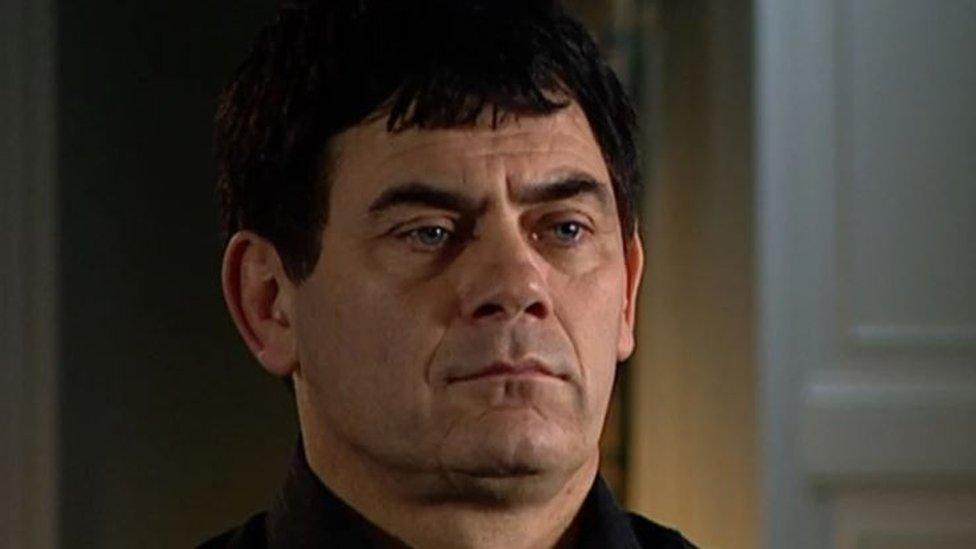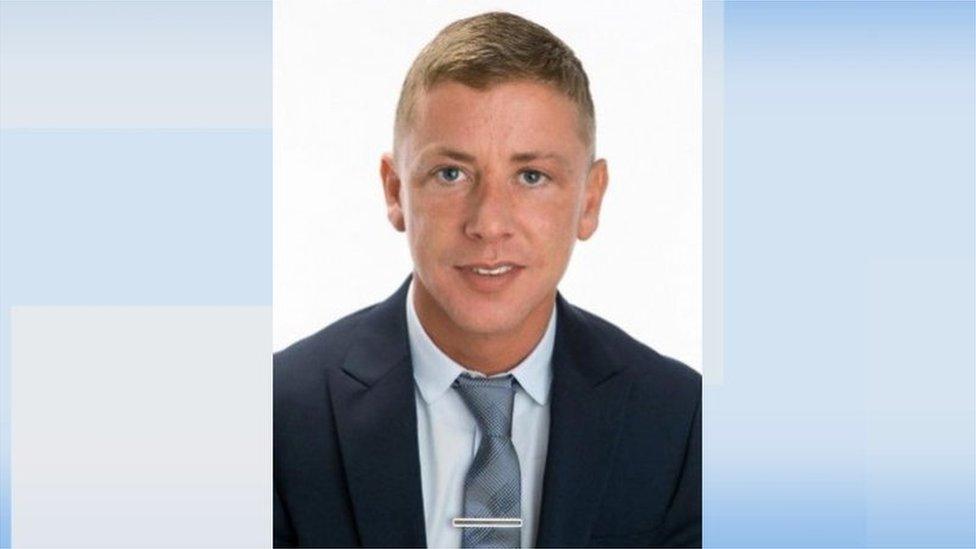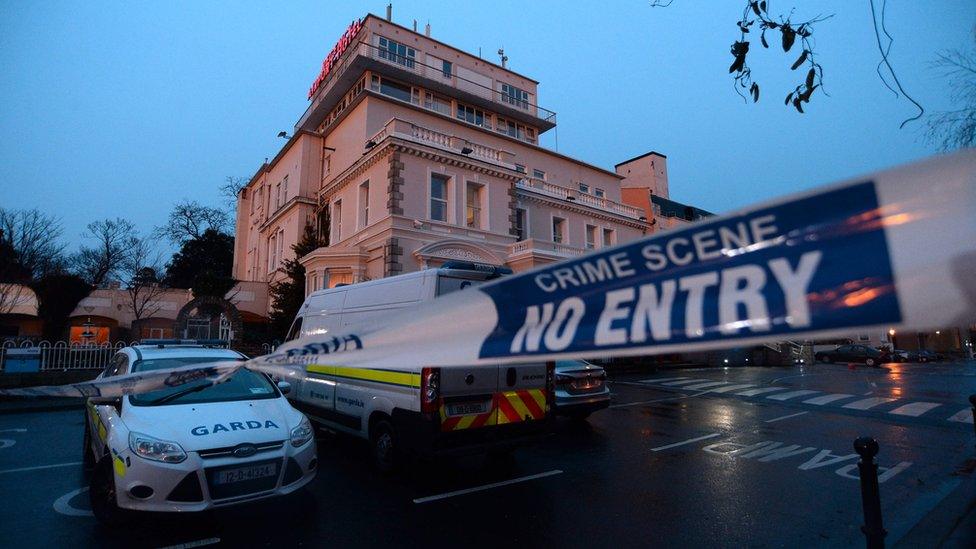Gerard Hutch trial: Ruling on tapes admissibility due Friday
- Published

Gerard Hutch, 59, has pleaded not guilty to the murder of David Byrne
The Special Criminal Court in Dublin will rule on the admissibility of the tapes played as evidence in Gerard Hutch's murder trial on Friday.
The 59-year-old, from the Paddocks in Clontarf, has pleaded not guilty to the murder of David Byrne in Dublin during a 2016 boxing weigh-in.
Hutch was secretly recorded on a journey to Northern Ireland with former Sinn Féin councillor Jonathan Dowdall.
The defence object to the admissibility of almost eight hours of the tapes.
It argued that because the vehicle the pair were travelling in was in Northern Ireland from 15:10 to 22:50 on the day of the surveillance - and so outside the Republic of Ireland - the tapes should not be used as evidence.
Mr Hutch and Dowdall were driving to Strabane in County Tyrone when the recordings were made.
The Special Criminal Court was previously told the murder of David Byrne, 33, at the Regency Airport Hotel, was carried out execution-style as part of the Hutch-Kinahan gang feud.
The three-judge court will rule on Friday morning whether the contents of the recorded conversations are admissible in evidence regarding to the extraterritoriality issue.
The men discussed several topics, including events at the Regency and the existence of the feud with the Kinahan Organised Crime Group.
Ms Justice Tara Burns confirmed that the judges had heard the audio and that both sides had said everything they wanted to say.
'Fruits from a poison tree'
Last Friday, defence lawyers for Mr Hutch argued that the permission to deploy the garda (Irish police) bugging device was sought with "an unintentional lack of candour".
A barrister told the non-jury court that "on its face" there had been an illegal operation of the Criminal Justice Surveillance Act.
On Monday, Sean Gillane SC, for the Director of Public Prosecutions, submitted that the conversations should be admissible in evidence and that any issue about where the device travelled to is "a cloud" which the defence has placed over the case.
He argued that an audio surveillance device is "simply an inanimate movable item" which had been "applied, sought, deployed, initiated and retrieved within the State" and that the data was recovered within the State.
He added: "No question of extraterritoriality in truth arises'."
The has heard that Dowdall's car crossed the border at 15:12 GMT on 7 March and back into the Republic of Ireland at 22:50 GMT that night at Aughnacloy in County Monaghan.

Jonathan Dowdall is a former Sinn Féin councillor
Replying to the state's submissions on Tuesday, defence counsel said the Oireachtas (Irish parliament) could exercise extraterritorial jurisdiction or "past its borders" when enacting legislation but if this was the case then it must expressly state this in the act.
The defence objected to the carrying out of surveillance outside the borders of the state and that if it was to be done then it must be done with "legal authority".
Retired Det Supt William Johnston, former head of the National Surveillance Unit (NSU), previously testified that he applied for authorisation to the court on 17 February 2016 to employ the audio device on Dowdall's car with a view to monitoring the conversations of Dowdall and his associates.
Defence counsel said the witness was reluctant to answer under cross-examination whether the Act permitted gardai to carry out surveillance outside the State.
He said the prosecution was asking the court to put "a strange" and very wrong interpretation on the Act.
In summary, the barrister said the gathering of conversations between both men in Northern Ireland was an unlawful operation of the Act and the material gathered "were the fruits from the poison tree".

David Byrne was murdered during a boxing weigh-in at Dublin's Regency Hotel in 2016
The Special Criminal Court has viewed CCTV footage of what the State says is Mr Hutch making two separate journeys to Northern Ireland with Dowdall on February 20 and March 7, 2016, just weeks after Mr Byrne was murdered.
Dowdall, 44, of Navan Road, Dublin, was due to stand trial for Mr Byrne's murder alongside Mr Hutch.
However, he pleaded guilty in advance of the trial to a lesser charge of facilitating the Hutch gang by making a hotel room available ahead of the murder.
He was jailed by the Special Criminal Court for four years.
The former councillor is currently being assessed for the Witness Protection Program after agreeing to testify against Mr Hutch.
Mr Hutch's two co-accused, Paul Murphy, 61, of Cherry Avenue, Swords, County Dublin, and Jason Bonney, 50, of Drumnigh Wood, Portmarnock, Dublin, pleaded not guilty to participating in or contributing to the murder of David Byrne by providing access to motor vehicles on 5 February 2016.
The trial continues.
Related topics
- Published28 November 2022
